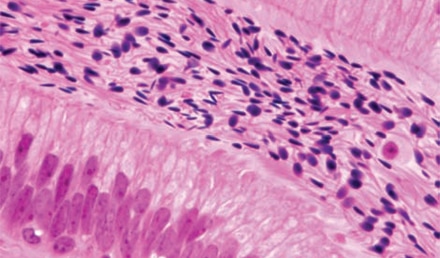The patient is a healthy 38-year-old who presents with progressive abdominal pain. There is no fever, vom- iting, or diarrhea. Upon examination, you find: No peritoneal signs Pulse is 55 Blood pressure is 118/50 The only remarkable finding when the history is taken is that the patient had corrective heart surgery as a child. View the x-rays taken (Figure 1 and Figure 2) and consider what your next steps would be. Resolution of the case …
Read MoreWhy I Practice Urgent Care Medicine
Lee A. Resnick, MD, FAAFP Nothing represents the breadth and scope of medicine quite like urgent care. The variety of complaints is daunting and requires a lifelong commitment to learning. Specialist back-up is scarce and diagnostics limited. Ultimately, the best care stems from a passion for examining the layers of each story, watching, listening, and compiling. Cultural, gender, and age biases can serve to guide our investigations or derail them: Where is this patient coming …
Read MoreInsights in Images – Clinical Challenge: Case 1
A 2 1⁄2-year-old child presents with a three-day history of cough but no fever. Upon examination, you find: Oxygen percent saturation 95% Resting respiration 31/min Pulse 145/min Decreased air entry over the left chest View Figure 1, take these findings into account, and consider what your next steps would be. Resolution of the case is described on the next page.
Read MoreEpididymitis-The Optimal Urologic Evaluation Management Approach in the Urgent Care Setting
Urgent message: Though epididymitis is clinically non-urgent, its symptoms are driving more and more men to urgent care, making it imperative that providers are familiar with its epidemiology, etiology, evaluation, and treatment. Introduction Epididymitis is among the most frequently diagnosed and treated conditions in men. Typically, men present to, and are diagnosed and treated by, their primary care physicians or their urologist. Treatment is with antibiotics on an outpatient basis. Epididymitis is, in general, non-life …
Read MoreOn Stone Passage, Wait-and-See Prescriptions, Foreign Bodies, and Wireless Prescribing
Medical Therapy to Facilitate Urinary Stone Passage: A Meta-analysis Citation: Hollingsworth JM, Rogers MA, Kaufman SR, etal. Lancet. 2006;368:1171-1179. URL: http://www.thelancet.com/journals/lancet/article/PIIS0140673606694749/abstract Key point: Medical therapy is an option for facilitation of urinary-stone passage. Medical therapies to ease urinary-stone passage have been reported, but are not generally used. If effective, such therapies would increase the options for treatment of urinary stones. The authors searched MEDLINE, Pre-MEDLINE, CINAHL, and EMBASE, as well as scientific meeting abstracts, up …
Read More
Epididymitis: The Optimal Urologic Evaluation Management Approach in the Urgent Care Setting
Urgent message: Though epididymitis is clinically non-urgent, its symptoms are driving more and more men to urgent care, making it imperative that providers are familiar with its epidemiology, etiology, evaluation, and treatment. Richard A. Schoor, MD, FACS, Private Practitioner, Smithtown, NY Epididymitis is among the most frequently diagnosed and treated conditions in men. Typically, men present to, and are diagnosed and treated by, their primary care physicians or their urologist. Treatment is with antibiotics on …
Read MoreKeeping the Joy of Practice
Many physicians in urgent care face burnout. While the numbers are probably far less than our emergency medicine colleagues, the burdens of productivity, quality, patient satisfaction, employee satisfaction, and risk management can weigh heavily on urgent care physicians, and with time, take the joy out of practicing. This is the first in a series of editorials providing practical tips for reducing “urgent care fatigue syndrome.” Let’s start with an approach to managing patients who are …
Read MoreClinical Challenge: January, 2007
Right Hip Pain on 3-year-old Girl
A 3-year-old girl presents to the urgent care center with right hip pain. She has no fever, and the parents report there was no trauma. The child has a limp and reproducible pain on external rotation of the right hip. White blood count is 11,900 with 40.7% lymphs. The erythrocyte sedimentation rate (ESR) is 3 mm/hour. The x-ray (Figure 1) shows fluid around the right hip joint; this finding was confirmed by ultrasound. View the …
Read MoreAcute Pericarditis in a 12-Year-Old Girl
M.J. is a 12-year-old African American female who presented with trouble “taking a breath” which was abrupt in onset, starting two hours prior to presenting and accompanied with abdominal pain and fatigue which resolved prior to her visit. Dyspnea was constant and not related to position. There were no alleviating or aggravating factors. Observations and Findings Patient was alert and in no distress and spoke in full sentences. Pmhx: bronchitis one year prior; no asthma, …
Read More